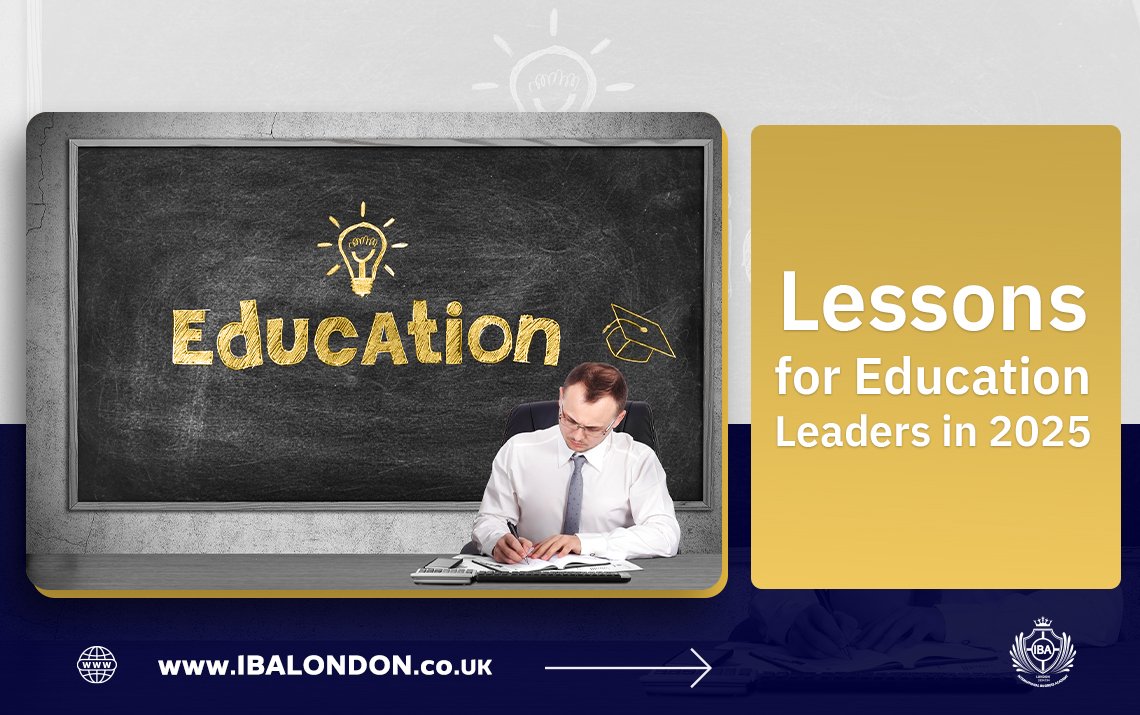
Building Global Leaders: How Education Must Adapt to an Interconnected Economy
Building Global Leaders: How Education Must Adapt to an Interconnected Economy
The world is evolving faster than ever before. Borders are blurring, economies are intertwining, and businesses are operating across continents at the click of a button. In this interconnected economy, the leaders of tomorrow must possess more than traditional management skills — they must have global awareness, cultural agility, and the ability to lead across boundaries.
At IBA London Ltd, we believe the foundation of global leadership begins in education. The question isn’t whether education must change — it’s how it must evolve to prepare future leaders for a world that demands adaptability, empathy, and innovation on a global scale.
The Shift: From Local Learning to Global Thinking
For decades, education systems around the world have focused primarily on national priorities — equipping students with knowledge relevant to their local markets and industries. But the global economy has rewritten the rules.
Today, a decision made in London can affect markets in Singapore, supply chains in Mexico, and consumers in Dubai. Students and professionals are now part of a shared global ecosystem, and that requires a new mindset: one that’s globally informed, culturally intelligent, and technologically empowered.
This shift means that traditional models of education — where knowledge is static and learning is confined to the classroom — are no longer enough. The new generation of global leaders must be taught how to navigate diversity, embrace collaboration, and think beyond borders.
The Skills Global Leaders Need
In an interconnected economy, leadership is not about authority — it’s about influence, understanding, and the ability to bridge differences. So, what skills must education now cultivate?
- Cultural Intelligence (CQ)
As highlighted in our previous article, cultural intelligence is a critical component of global leadership. Future leaders must understand and adapt to different cultural contexts. They must be able to communicate, negotiate, and collaborate with people whose values and communication styles differ from their own.
Educational institutions should embed cross-cultural learning into their programmes — through international projects, global case studies, and exposure to diverse perspectives.
- Global Mindset
A global mindset means viewing challenges and opportunities through an international lens. It involves curiosity about the world, openness to new ideas, and the ability to connect global trends to local impact.
Students with a global mindset are not afraid of complexity. Instead, they see interconnectedness as an advantage — understanding that the best solutions often come from diverse sources and shared knowledge.
- Adaptability and Lifelong Learning
Technology and geopolitics are transforming the business landscape at lightning speed. The leaders of tomorrow must be flexible learners, capable of continuously updating their skills and perspectives.
Education systems must teach adaptability — not just through theory, but through experience. Project-based learning, internships, and problem-solving workshops help students learn how to pivot, think critically, and innovate under pressure.
- Ethical and Sustainable Leadership
Global leaders must also be ethical thinkers, aware of how their decisions affect people and the planet. As businesses grapple with sustainability and social responsibility, future leaders must balance profitability with purpose.
Educational institutions can lead this change by integrating ethics, sustainability, and global citizenship into their curricula — ensuring students not only succeed but also make a positive global impact.
- Digital and Technological Literacy
In a world driven by AI, data, and digital collaboration, leaders must be comfortable with technology. They don’t need to be programmers, but they must understand how digital tools shape industries, communication, and innovation.
Education must therefore fuse technology into every aspect of learning — from virtual global classrooms to digital simulations that replicate real-world challenges.
How Education Must Adapt
To build global leaders, education must transform — from content to delivery. The following changes are essential:
- Curriculum Reimagined for Global Relevance
Traditional curricula are often outdated or too locally focused. Universities, business schools, and training providers must embed global perspectives into their programmes.
Courses should draw on international case studies, cross-border business examples, and global economic data. For instance, a marketing course should explore how consumer behaviour varies across regions; a leadership module should examine management styles in different cultural settings.
This approach ensures that graduates understand how theory translates in diverse real-world contexts.
- Experiential and Cross-Cultural Learning
Nothing builds global understanding like real experience. Institutions can partner with international organisations, universities, and NGOs to offer exchange programmes, global internships, and collaborative projects.
Virtual exchange platforms can also connect classrooms from different continents, allowing students to collaborate on shared challenges. This not only enhances cultural awareness but also builds empathy, teamwork, and communication skills.
At IBA London Ltd, we often work with clients to design training programmes and educational collaborations that bridge cultural gaps and equip learners with global competencies.
- Partnership Between Education and Industry
Global leadership isn’t developed in isolation. It thrives where academia and industry intersect. Businesses must collaborate with educational institutions to co-create learning experiences that reflect real-world complexities.
Through guest lectures, mentorship, internships, and live business projects, students can gain practical exposure to international business dynamics — preparing them to lead in a globalised workplace.
This partnership also ensures that education remains agile and relevant, evolving alongside shifting economic and technological landscapes.
- Emphasising Emotional and Social Intelligence
In a world that’s hyper-connected yet often divided, emotional intelligence (EQ) has become a leadership essential. Education must focus not only on academic excellence but also on self-awareness, empathy, and interpersonal skills.
Training future leaders to listen, collaborate, and build trust across cultures is just as important as teaching them finance or strategy.
- Encouraging Global Citizenship
True global leaders see themselves as part of a shared humanity. Education can nurture this worldview by promoting global citizenship — encouraging students to think beyond national interests and contribute to the greater good.
Through service learning, sustainability projects, and cross-border collaboration, students learn to connect business success with social responsibility — creating leaders who are not only competent but also compassionate.
The Role of Organisations Like IBA London Ltd
At IBA London Ltd, we recognise the growing need for leadership education that reflects our interconnected world. Our mission is to equip professionals and organisations with the skills, mindset, and confidence to operate successfully in a global economy.
Through our bespoke training programmes, executive coaching, and international business consultancy, we help clients develop:
- Cultural and emotional intelligence
- Global strategic thinking
- Adaptability and resilience
- Cross-cultural communication and collaboration
We partner with educational institutions and corporations to design learning experiences that bridge theory and practice, ensuring that leaders are prepared not just for today’s challenges but for tomorrow’s opportunities.
Final Thoughts
The world has changed — and education must change with it. Building global leaders requires more than academic excellence; it demands a reimagined approach to learning that values cultural understanding, adaptability, and ethical decision-making.
As the global economy becomes increasingly interconnected, those who can think, act, and lead globally will define the next era of business and innovation.
At IBA London Ltd, we are proud to be part of this transformation — helping individuals and organisations shape a future where leadership knows no borders.


